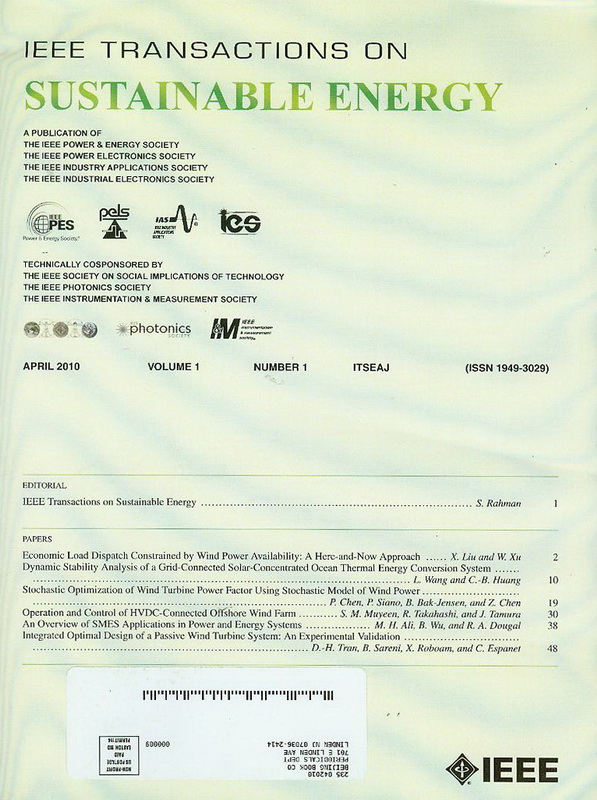Cooperative Planning of Multi-Energy System and Carbon Capture, Utilization and Storage
IF 8.6
1区 工程技术
Q1 ENERGY & FUELS
引用次数: 0
Abstract
Carbon capture, utilization, and storage (CCUS) can play critical roles in transitioning to global net-zero emissions. However, existing works only focus on small-scale or local CO 2 utilization. For the first time, this paper proposes a cooperative planning model of multi-energy system and CCUS considering the regional CO 2 availability. In this model, the multi-energy system and CCUS are coupled through interconnected energy hubs. To leverage its inherent operational dispatchability and flexibility, the physicochemical and thermo-electrochemical processes of CCUS are mathematically formulated with source-sink matching analysis. The multi-energy planning is a demanding optimization challenge owing to its inherent nonconvexities and substantial energy-interest couplings. The original problem is firstly relaxed as mixed integer second-order cone programming (MISOCP) to ensure satisfactory computational efficiency. A carbon-oriented bargaining problem can then be reformulated to share the cooperative surplus, which is further decomposed into a joint investment/operation subproblem and a cost-sharing subproblem. The proposed methodology is benchmarked over interconnected energy hub systems to show its effectiveness and superiority in technical, economic, and environmental aspects.多能源系统与碳捕获、利用和储存的合作规划
碳捕集、利用和封存(CCUS)可在向全球净零排放过渡方面发挥关键作用。然而,现有研究仅关注小规模或局部的二氧化碳利用。本文首次提出了一种考虑区域二氧化碳可用性的多能源系统与 CCUS 合作规划模型。在该模型中,多能源系统和 CCUS 通过相互连接的能源枢纽耦合。为了充分利用其固有的运行调度性和灵活性,通过源-汇匹配分析,对 CCUS 的物理化学和热电化学过程进行了数学计算。由于其固有的非凸性和大量的能源-利益耦合,多能源规划是一项艰巨的优化挑战。首先将原始问题放宽为混合整数二阶圆锥编程(MISOCP),以确保令人满意的计算效率。然后,可以重新制定一个面向碳的讨价还价问题,以分享合作盈余,并将其进一步分解为一个联合投资/运营子问题和一个成本分担子问题。对所提出的方法进行了互联能源枢纽系统的基准测试,以显示其在技术、经济和环境方面的有效性和优越性。
本文章由计算机程序翻译,如有差异,请以英文原文为准。
求助全文
约1分钟内获得全文
求助全文
来源期刊

IEEE Transactions on Sustainable Energy
ENERGY & FUELS-ENGINEERING, ELECTRICAL & ELECTRONIC
CiteScore
21.40
自引率
5.70%
发文量
215
审稿时长
5 months
期刊介绍:
The IEEE Transactions on Sustainable Energy serves as a pivotal platform for sharing groundbreaking research findings on sustainable energy systems, with a focus on their seamless integration into power transmission and/or distribution grids. The journal showcases original research spanning the design, implementation, grid-integration, and control of sustainable energy technologies and systems. Additionally, the Transactions warmly welcomes manuscripts addressing the design, implementation, and evaluation of power systems influenced by sustainable energy systems and devices.
 求助内容:
求助内容: 应助结果提醒方式:
应助结果提醒方式:


